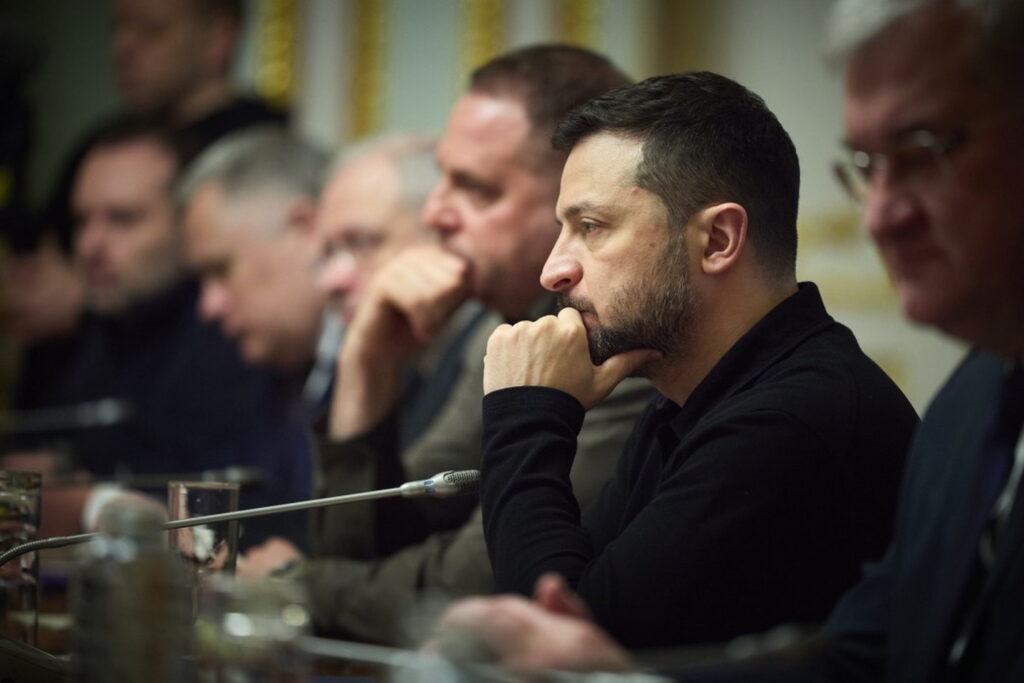Brussels – “The US government is not a charity.” These words, spoken yesterday (Jan. 30) by the new Secretary of State, Marco Rubio, encapsulate the direction the new American administration intends to follow right from its inception. On the day of his inauguration on Jan. 20, among the first executive orders Donald Trump signed was a 90-day freeze on the generous development aid Washington was doling out globally.
This decision, predictably, is putting in serious difficulty many international humanitarian organizations that will no longer be able to operate on the ground. And the most significant problems are already being encountered in Ukraine, which was the beneficiary of almost half of the blocked federal funds alone.
Frozen Funds
According to data compiled by the US government, in 2023, the Federal Agency for International Development (USAID) allocated over $36.5 billion to humanitarian projects worldwide, of which almost $16.5 billion went to Kyiv. However, since Jan. 24, nearly all the funds have been blocked for an initial period of 90 days, after which a review will determine whether to continue on this path or adjust the suspension.
In a nutshell, in addition to stopping USAID-financed fieldwork and prohibiting the start of new projects, the suspension order also bans using already allocated funds for any kind of expenditure, including staff salaries, for three months.
“We are rooting out waste,” the Department of State said in a statement to provide further details on the historic White House decision. “We are blocking woke programs. And we are exposing activities that run contrary to our national interests,” it added.
The U.S. contributes roughly 40% of global humanitarian aid. Americans deserve transparency and accountability. As we pause and review U.S. foreign aid, @SecRubio issued a waiver for life-saving humanitarian assistance programs. https://t.co/Kwr6Bi8MES
— Department of State (@StateDept) January 29, 2025
Forced bankruptcy?
“If I have to be honest, it’s a bloody disaster for the whole sector,” a human rights organization staff member confesses worriedly to Eunews, who shared his thoughts on condition of anonymity because the executive order prohibits aid workers from releasing details on the matter. “I expect that by the end of the review period, many organizations doing important work around the world will be bankrupt,” he explains, adding that “this is probably, at least in part, intentional on Trump’s part” to avoid having to continue supporting programs no longer in line with White House priorities.
“They tied our hands behind our backs,” he goes on, illustrating the situation: “We currently have about half a million dollars in our account, but we cannot spend 90 percent of it because it comes from the US government,” which evidently “expects us to stay afloat like this for three months while they tick a few boxes.” On the other hand, Washington fully funds his organization’s team active in Ukraine.
“For smaller organizations that received all their funding from the US government, it might be more realistic to secure emergency grants elsewhere,” he reasons, noting that his group will likely face greater difficulties. “Even if we suspend all of our activities,” as required by the presidential order, “we will need about $450,000 just to pay staff this quarter, and I don’t think any donor is willing to give that kind of money to a single organization,” he says, as a significant number of entities are already urgently requesting financial support.
The situation in Ukraine
This week, Rubio introduced additional exemptions from the freeze for humanitarian programs that provide life-saving medicine, medical services, food, shelter, and living assistance, which are in addition to waivers initially provided only for emergency food programs and military aid to Israel and Egypt (which in 2023 received 3.3 and 1.2 billion respectively).
The State Department and the Pentagon have assured that military aid to Ukraine will continue, as will support for “life-saving” programs. But this still leaves in suspense and confusion not only the civilian programs essential to Kyiv’s war effort (including support for public salaries that keep the Ukrainian state machine running) but also the vast network of humanitarian organizations active in the former Soviet republic, which in less than a month will see the third anniversary of the large-scale Russian invasion.

“The problem lies in the sudden nature of the decision,” Ivona Kostyna, director of an NGO that assists Ukrainian veterans, explained to Euractiv . “If we had notice, we could have restructured our operations, looked for other donors, and avoided harm to our clients,” she noted, explaining that she had to close one of the work centers.
There are several organizations like hers that, despite carrying out activities that save lives, are nevertheless remaining out of waivers. Many had to lay off staff, while others closed permanently. There are those who, just a few dozen kilometers from the front line, provide essential services such as constant updates on the location of landmines, sites where they can retrieve uncontaminated water, or even bullet-proof vests for journalists who follow the evolution of the war and will no longer be able to rely on grants from Washington.
As expected, there are multiplying appeals from an increasing number of organizations in the attacked country to their European partners to take action to compensate, at least partially, the chasm that the US withdrawal has opened in their budgets, which inevitably results in their inability to continue their activities at a time when the urgency has certainly not ceased.
English version by the Translation Service of Withub







